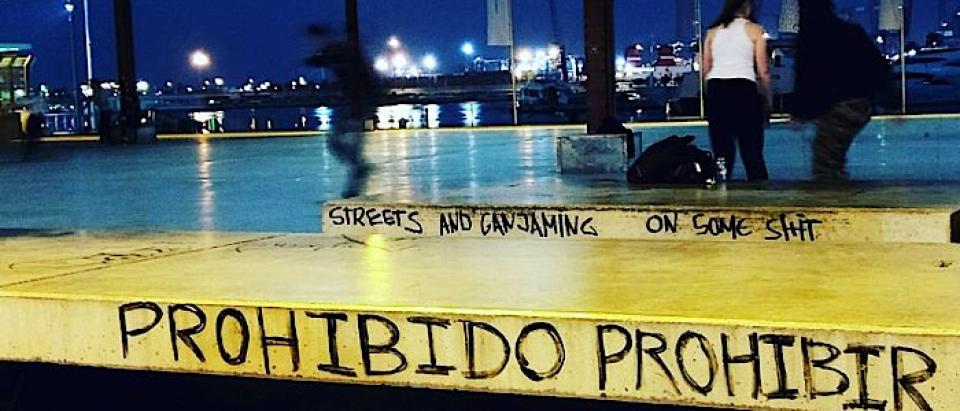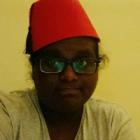
Prohibition is prohibited: photograph by Smita Vanniyar
When once I registered for the 2017 Internet Freedom Festival in Valencia, I was added to a mailing list which had a constant flow of information on the festival and the activities related to it. Even before the schedule came out, the festival sounded fascinating, and distinctly different from other conferences, both national and international, which I have attended as of now. The board was diverse, the language was not uber formal and there was a constant chatter about glitter, which intrigued me greatly.
It was one of the first digital rights conference where there were equal number of men and women (47% women) as well as a significant number of trans and gender nonconforming persons. It was SO refreshing!
I volunteered for helping out with registrations on the first day of the festival. Womanning the line for names starting with ‘M-R’ with three others for three hours was more than sufficient to give me an idea of just how diverse this festival was going to be. It was one of the first digital rights conference where there were equal number of men and women (47% were women attendees according to the IFF website) as well as a significant number of trans and gender nonconforming persons. It was SO refreshing!
To know more about how IFF sessions are curated and the fellowship program, click here.
Then the sessions began. I had marked all the gender and/or sexuality related ones as soon as the schedule was out. But tough choices had to be made since a bunch of sessions on gender and/or sexuality clashed with one another. Imagine having to choose between a session on building collective power to counter online censorship against a feminist group and another session on trans-sexuality in the time of technology! It took a little bit of running around the venue and some discreet slipping in and out of sessions, but we managed to make it work. And am I glad we did!
From a fantastic session on how to build inclusive technology to another one on what the youth in Jordan/Lebanon/Palestine can teach us about digital security, the various workshops and panels at IFF were a mental rollercoaster ride, the good nerdy kind which one experiences when you learn a lot of new things, and want to keep doing so. I really really appreciated the fact that the session organisers and speakers weren’t simply stating problems, but were actively suggesting as well as seeking solutions. This, to me, is the ultimate sign of a strong community, one in which there is mutual support and solidarity through knowledge sharing.

Screengrab, courtesy Smita
It is also important for me to acknowledge the fact that I learnt as much over coffee, smokes, and meals with different people as I did in sessions. This also includes my first women, trans and gender nonconforming persons of colour meetup. It felt like a safe space within a safe space, where everyone came from similar points of struggle and were stronger inspite/because of that. The IFF organisers said that you should ideally have five new friends by the end of the festival, if not more. I don’t know about friends, but I sure met at least five people who taught me something new by sharing their knowledge.
Here are some of the many related and random things which I learnt about:
- How blockchain technology can be used to impose fair wages
- About hosting a website on github and why that is a good thing
- Being queer on dating sites in the MENA context and friendships in these spaces
- Falles Festival and the kinds of firecrackers used in Valencia
- How to paint glitter patterns on people
The last session which I attended at the 2017 Internet Freedom Festival was on celebrating gender campaigns in the global south, and it was a fitting ending. The session looked at reclaiming technology, the Take Back the Tech campaign, the intersection of gender, sexuality, and technology and the various ways in which technology is being reclaimed slowly. As one of the speakers said, one of the main ways in which we can take back the tech is by producing diverse content, and this can happen only if we diversify the content producers. Spaces like the Internet Freedom Festival, with the fantastic staff, volunteers, coffee, croissants, music and dance, and glitter, are very very essential for this.
I also went to my first women, trans and gender nonconforming persons of colour meetup. It felt like a safe space within a safe space, where everyone came from similar points of struggle and were stronger inspite/because of that.
- 4245 views






Add new comment